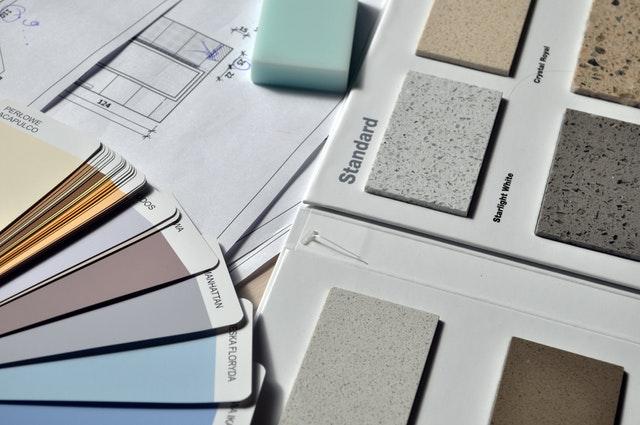Blog Post
Fixer-Upper Tips for First-Time Homebuyers
Ray Flynn • April 25, 2020

When you buy your first home, it’s not always likely to be your dream home. Generally, we have to make compromises when it comes to size and features and then work with what we get. But the first-time homebuyer shouldn’t dismiss buying a fixer-upper
for their starter house. Sometimes a home that needs a little TLC could end up being close to fitting the mold of the home you’ve always dreamed of. It just takes a little creative thinking.
Why Buy a Fixer-Upper
● You can save a lot on the big initial investment when you buy a fixer-upper house, stretching your down payment further and maybe getting a lower mortgage rate. Furthermore, with each big repair you complete, the value of your property goes up.
● When you have a fixer-upper, you have more freedom to change things up and re-do the home to fit your vision.
● Fixer-uppers make it easier to afford to live in your chosen neighborhood.
● There’s less competition when it comes to fixer-upper homes.
● When you renovate a fixer-upper house, you can make eco-friendly adjustments that modernize the home, save you money, and lessen your overall carbon footprint.
● Your property taxes may be lower than your already-updated neighbor’s. In many areas, taxes are based on assessed value, which includes the house and land and the condition of each. Furthermore, homeowners can get tax breaks with eco-friendly updates.
● When you have a fixer-upper, you have more freedom to change things up and re-do the home to fit your vision.
● Fixer-uppers make it easier to afford to live in your chosen neighborhood.
● There’s less competition when it comes to fixer-upper homes.
● When you renovate a fixer-upper house, you can make eco-friendly adjustments that modernize the home, save you money, and lessen your overall carbon footprint.
● Your property taxes may be lower than your already-updated neighbor’s. In many areas, taxes are based on assessed value, which includes the house and land and the condition of each. Furthermore, homeowners can get tax breaks with eco-friendly updates.
Buying a Fixer-Upper Home
Not every fixer-upper investment is sound. If the property’s damages are too severe, it can cost more than the home is worth to restore it. In these cases, it’d be easier to tear it down and start from scratch. To avoid making the mistake of investing in a house that you can’t fix, find a property inspector you like and put his number on speed dial.
When it comes to negotiating a lower price on a fixer-upper, a property inspector can help. If you find a house you are interested in, schedule an inspection to ensure that the overall structure is sound. Your inspector can also look for things that should be left for the owner to repair before you finalize the sale. If they agree, always have your property inspector do a secondary check to ensure the renovations that were agreed upon are completed.
When it comes to negotiating a lower price on a fixer-upper, a property inspector can help. If you find a house you are interested in, schedule an inspection to ensure that the overall structure is sound. Your inspector can also look for things that should be left for the owner to repair before you finalize the sale. If they agree, always have your property inspector do a secondary check to ensure the renovations that were agreed upon are completed.
Fixer-Upper DIY Projects
While you will likely need to hire a contractor more than once while working on your fixer-upper home, there are plenty of projects
that are safe for the Average Joe to take on. With that being said, if you are not very familiar with drills, sanders, jigsaws, and the like, let’s just say you are about to be. Your DIY skills are going to vastly improve while repairing your fixer-upper.
● Painting is one of the easiest ways to personalize your home. Think beyond the walls to make a big impact with your gallons. Consider painting cabinets, floors, and shutters to change up the decor. You can also experiment with different patterns, textures, and materials. For instance, paint a wall in the kitchen with chalkboard paint so family members can jot down grocery lists, notes, and cutesy doodles throughout the week.
● Bathroom and minor kitchen remodels typically have the biggest payoff when it comes to investment vs. resale value. While you should get a plumber and/or electrician to help out when it comes to big renovations, there are plenty of things you can do on your own. Focus on adding light, storage, and functionality to each of these rooms, and you’ll see a decent return on your investment.
● Decorative molding makes a house look more expensive and stylish, but it’s easy to add yourself. You’d be surprised at all the different ways you can use it to elevate a room’s appearance. Of course, if your tastes are more modern and minimalist, there are other ways to DIY decorate.
A fixer-upper is a great choice for first-time homebuyers because it can help save money on the initial investment. A good property inspector can help steer buyers away from unsound properties and negotiate repairs and costs. While contractors, plumbers, and electricians should supervise large projects, homeowners can personalize their fixer-uppers with DIY projects that add light, storage, and functionality to their house.
● Painting is one of the easiest ways to personalize your home. Think beyond the walls to make a big impact with your gallons. Consider painting cabinets, floors, and shutters to change up the decor. You can also experiment with different patterns, textures, and materials. For instance, paint a wall in the kitchen with chalkboard paint so family members can jot down grocery lists, notes, and cutesy doodles throughout the week.
● Bathroom and minor kitchen remodels typically have the biggest payoff when it comes to investment vs. resale value. While you should get a plumber and/or electrician to help out when it comes to big renovations, there are plenty of things you can do on your own. Focus on adding light, storage, and functionality to each of these rooms, and you’ll see a decent return on your investment.
● Decorative molding makes a house look more expensive and stylish, but it’s easy to add yourself. You’d be surprised at all the different ways you can use it to elevate a room’s appearance. Of course, if your tastes are more modern and minimalist, there are other ways to DIY decorate.
A fixer-upper is a great choice for first-time homebuyers because it can help save money on the initial investment. A good property inspector can help steer buyers away from unsound properties and negotiate repairs and costs. While contractors, plumbers, and electricians should supervise large projects, homeowners can personalize their fixer-uppers with DIY projects that add light, storage, and functionality to their house.
Ray Flynn | DiyGuys.net
ray.flynn@diyguys.net
ray.flynn@diyguys.net
S&P Properties, LLC
Storrs Center, CT 06268, United States of America





